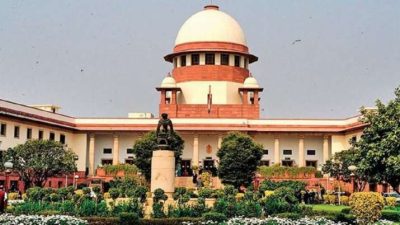India’s Supreme Court: No restrictions on Unvaccinated Individuals, No One Can be Forced to Take the Jab
The Supreme Court underlined that bodily autonomy and integrity are protected under Article 21 of the Constitution.

All Global Research articles can be read in 51 languages by activating the “Translate Website” drop down menu on the top banner of our home page (Desktop version).
To receive Global Research’s Daily Newsletter (selected articles), click here.
Visit and follow us on Instagram, Twitter and Facebook. Feel free to repost and share widely Global Research articles.
***
The Supreme Court on Monday said that no person can be forced to get vaccinated against COVID-19 and directed the Central government to make public adverse effects of vaccination.
A bench of Justices L Nageswara Rao and BR Gavai said bodily autonomy and integrity are protected under Article 21 of the Constitution. The top court said the current COVID-19 vaccine policy cannot be said to be manifestly arbitrary and unreasonable.
“Till numbers are low, we suggest that relevant orders are followed and no restriction is imposed on unvaccinated individuals on access to public areas or recall the same if already not done,” the bench said.
Regarding segregation of vaccine trial data, subject to privacy of individuals, all trials conducted and to be subsequently conducted, all data must be made available to the public without further delay, it said.
“Regarding segregation of vaccine trial data, subject to privacy of individuals, all trials conducted and to be subsequently conducted, all data must be made available to the public without further delay,” the court said.
The apex court also directed the Union of India to publish reports on adverse events of vaccines from the public and doctors on a publicly accessible system without compromising the data of individuals.
The court delivered the judgement on a plea filed by Jacob Puliyel seeking directions for disclosure of data on clinical trials of COVID-19 vaccines and post-jab cases.
*
Note to readers: Please click the share buttons above or below. Follow us on Instagram, Twitter and Facebook. Feel free to repost and share widely Global Research articles.
With inputs from PTI
Featured image is from PTI

